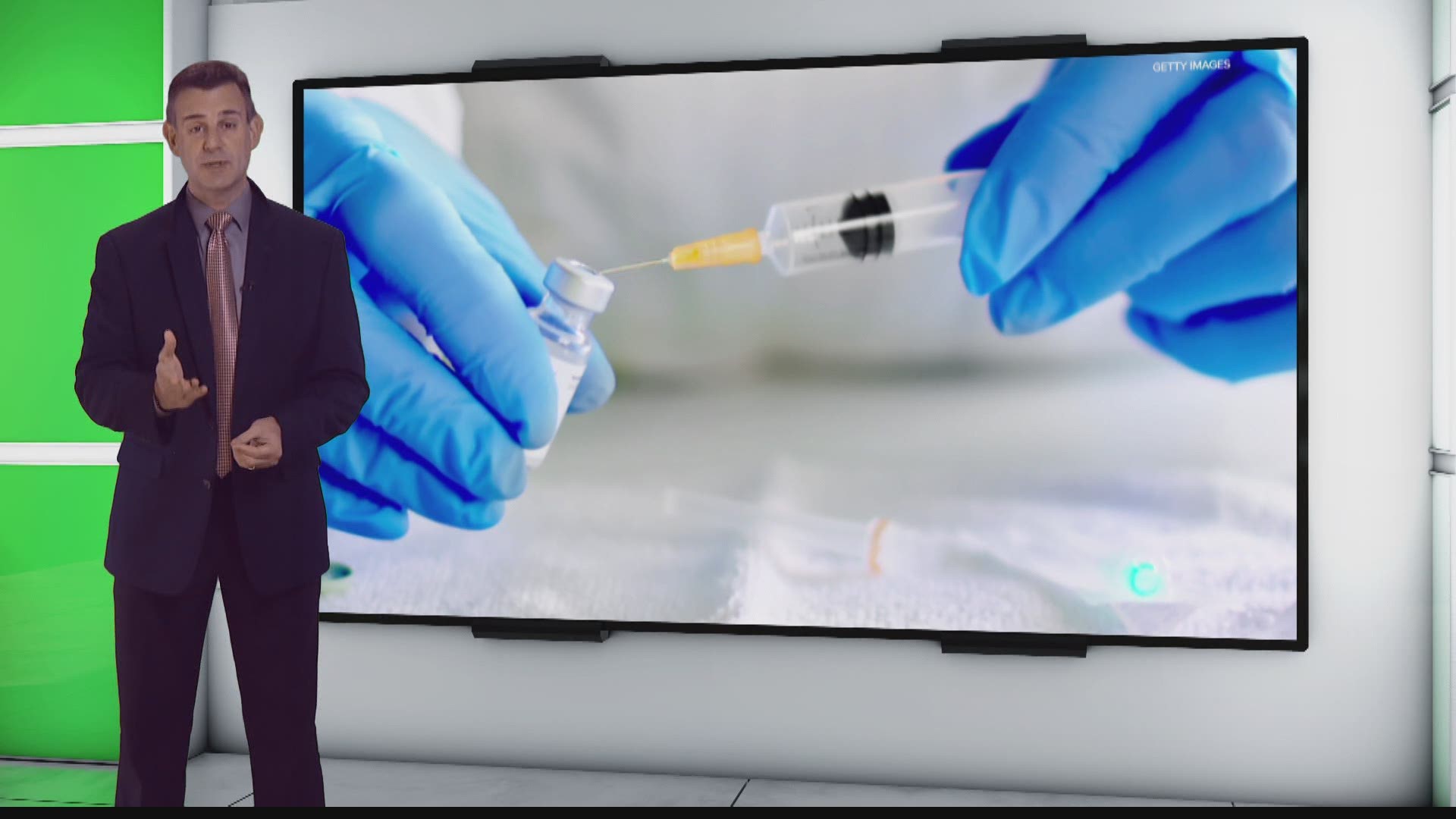INDIANAPOLIS — Millions of doses of Pfizer’s COVID-19 vaccine are now being shipped across the country, and the vaccine must be stored at around 90 degrees below zero (F), which is colder than a winter day in Antarctica.
The questions
Curious about the possibility of getting a frigid blast of vaccine injected into their deltoid muscle, some 13News viewers have been contacting our VERIFY team with questions.
"With the vaccine being shipped and stored frozen...how does a frozen vaccine get injected into your body?" asked one viewer.
"If this vaccine has to be stored at sub-zero temps, will it still be this cold when you get the shot?" wondered another.
Our sources
Our sources are the US Food and Drug Administration, which provides health care workers with a vaccine instruction guide, and IU Health, which will begin administering the vaccine to health care workers later this week.
What we found
Here's what we know about how the first coronavirus vaccine will be administered.
The FDA confirms vials of the Pfizer coronavirus vaccine must be transported and stored in a frozen state between -76 and -112 degrees Fahrenheit. The frigid temperature makes the vaccine more stable by slowing down chemical reactions that would cause enzymes to break down the vaccine.
But the agency’s fact sheet for health care providers says the vaccine "must be thawed and diluted prior to administration" and "vials must reach room temperature before dilution."
The pharmacy director for Indiana University Health said the thawing process can take place very quickly.
“You can thaw a vial in 30 minutes at room temperature or in the fridge for two hours,” said Tate Trujillo, IU Health’s director of pharmacy. “Once we reconstitute it, it is good at room temperature for six hours.”
Once each vial of vaccine is thawed and diluted with a saline solution, the FDA says it must be stored between 35 and 77 degrees Fahrenheit and, as Trujillo pointed out, must be used within six hours.
So health care workers and patients who will be getting a Pfizer COVID-19 vaccine will NOT be getting a frozen shot in the arm.
The vaccine is designed to be administered at “room temperature,” according to Dr. Paul Calkins, the associate chief medical executive at IU Health. That means when the vaccine is injected into your body, it will be about 150 degrees (F) warmer than when it arrived at the health care center.

